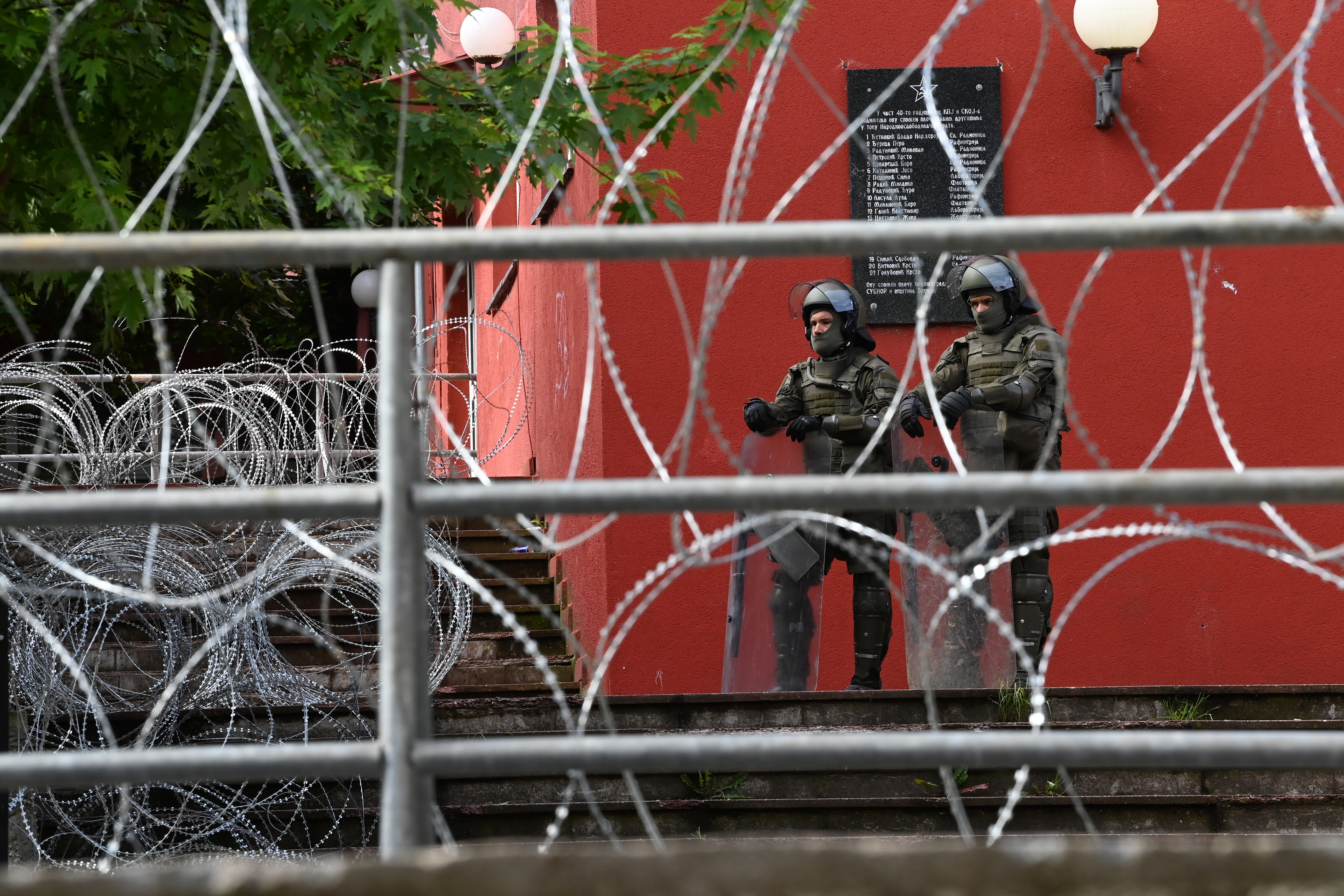The International Press Institute (IPI) today joins the undersigned international press freedom organisations in expressing our deep concerned about the recent wave of violent attacks on journalists in Kosovo, which has been the most intense in the country’s recent history. We jointly call on the authorities to immediately put in place the necessary measures to guarantee reporters’ and media workers’ safety, enabling them to continue to report on the tense protests in the north of the country.
At the end of April, extraordinary local elections took place in municipalities in northern Kosovo with ethnically Serb majorities, which the latter group boycotted. Last week Friday, 26 May, the newly-elected, ethnically Albanian mayors tried to enter their offices, accompanied by Kosovo police. Protests to try to stop the handover of the premises escalated and were dispersed by the police and NATO-led Kosovo Force peacekeeping troops (KFOR) using tear gas.
Since then, the Association of Journalists of Kosovo (AJK) has documented at least 20 attacks and other incidents targeting journalists and media. The attacks include physical assaults on journalists and media workers and the vandalism of equipment such as cameras and cars. At least four journalists or media workers have been injured. In Zvecan, journalists working for Albanian-speaking media were forced to shelter inside the municipality building for an hour to prevent more attacks. Meanwhile, Serbian journalists also claim discrimination by Kosovo officials in accessing venues.
Ignoring repeated calls by AJK, Kosovo police and KFOR have not established a protocol to ensure journalists’ safety during violent protests and riots: there are no standard operating procedures or effective risk mitigation strategies. Despite some individual contacts, cooperation and communication between law enforcement authorities, journalists and their representatives are lacking on a structural level. In particular, there has been no communication between journalists and law enforcement before and during these recent clashes. No measures were taken to coordinate the identification of journalists and ensure their protection.
We condemn the apparent targeting of journalists and media workers by all factions during these protests and riots. To ensure they can fulfil their public interest duty to report from the scene, we call on the Ministry of Interior and the police to immediately establish regular communication between law enforcement and journalists and their representatives before, during and after protests.
Law enforcement must urgently implement basic safety protocols and operating procedures to improve journalists’ safe working conditions in these circumstances and ensure their access to relevant locations. We also call on KFOR to prioritise the protection of journalists as part of their mission to maintain a safe and secure environment for all. Lastly, media employers are responsible for providing journalists with safety training and advice, protective equipment, and adequate responses in case of physical or psychological trauma.
Meanwhile, we urge all sides to de-escalate the tension and stop targeting journalists and media workers immediately. We will continue to follow the situation closely.
Signed:
ARTICLE 19 Europe
Balkan Investigative Network in Albania (BIRN Albania)
Civil Rights Defenders
Committee to Protect Journalists
European Centre for Press and Media Freedom (ECPMF)
European Federation of Journalists (EFJ)
Free Press Unlimited (FPU)
Index on Censorship
International Press Institute (IPI)
Justice for Journalists Foundation
OBC Transeuropa (OBCT)
Reporters Without Borders (RSF)
The Daphne Caruana Galizia Foundation
